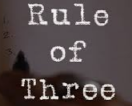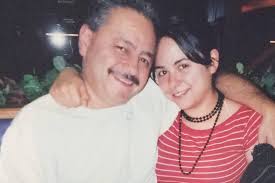Between August 17 and 20, Democrats improvised the nation’s first virtual national political convention. One journalist likened
it to building an airplane in flight. With the convention hall empty, no delegates in funny hats, and balloon drops unavailable, the party grabbed the nation’s attention with four nights of videos, speeches without live audiences, and innovations on time-honored traditions, like a roll call that nominated former Vice President Joe Biden from 57 locations. We don’t know yet if Biden got the “bounce” in the polls convention planners covet, but they set the bar high for Republicans who take their turn starting August 24.
The three of us sat on the sidelines and watched intently. We saw some other threes worth noting.
Three Messages
First, Democrats offered a big tent. In executing their presentation, the party defined its mission as making democracy available to all, from the most privileged to the most marginalized, and everyone in between. Establishment figures, including Republicans, played their part, as did union members, front-line health workers, and ordinary people with compelling stories of personal tragedy. The objective, admittedly not easily accomplished, was moving the nation forward as one.
Second, we’ve known for a while whoever won the 2020 Democratic nomination would have restoring America’s place in the world as one of his or her most important jobs. Tuesday night, two former Secretaries of State vouched for Biden on that front.
Democrat John Kerry and Republican Colin Powell assured the nation Biden will stand up to America’s adversaries and stand with its allies. Cindy McCain narrated a film celebrating Biden’s long friendship with her late husband, John McCain, a Vietnam war hero and national security icon.
Third, through technology and the speeches, Democrats made clear the threat posed by another four years of President Donald Trump. No matter how much inclusion or how many progressive ideas the party promotes, none of it matters unless Americans vote and remove the clear and present danger continuation of the Trump presidency represents.
The Wednesday night contrast of Kamala Harris’s vice presidential acceptance speech and former President Barack Obama’s grave warning about Trump drove home that point. Her history-making moment as the first woman of color on a national ticket won’t mean much unless voters exorcise the Trump cancer.
Three Speeches
Political conventions are about nothing if not speeches. We saw plenty of them from our sideline perch - some really good, some ordinary, some mediocre. We saw three that potentially merited the label GREAT:
Michelle Obama showed Monday night why she is so impactful. Admitting she “hates politics,” the former First Lady of the United States delivered a masterful expose’ on what Americans must do in the face of Trump’s voter suppression campaign. Voting in this election may mean standing in line “all night if you have to,” so pack a lunch and breakfast too, she urged.
Barack Obama on Wednesday night framed the electoral choice in the starkest, gravest terms imaginable. No former president had ever expressed publicly such a dire view of a successor. But, in our view, the speech met the moment. We can’t say we haven’t been warned.
Joe Biden gave an acceptance speech for the ages. He promised he’d run as a “proud Democrat” but govern as an “American president.” Robbed of the cheering crowd, he seriously and soberly laid out his plans for the country and drew the starkest contrast possible with Trump. Any suggestion he’s not up to the task mentally melted away in a flurry of direct, succinct sentences, well-organized thoughts, and powerfully delivered phrases.
Three Ordinary People; Three Special Moments
The virtual format made it easier showcasing ordinary people intersecting with national politics. Consider Kristin Urquiza, Jacquelyn Brittany, and Brayden Harrington. They’re famous now because of this convention.
*Kristin Urquiza of Arizona Monday night told of her father’s death from COVID -19. She boldly declared the 65-year old man’s “only pre-existing condition was trusting Donald Trump.” He took the word of Trump and Arizona’s Republican governor that going to a bar in June was safe. He contracted the virus and died. His daughter now crusades against the president’s reckless, inept handling of the pandemic.
*Jacquelyn Asbie operates the elevator in
the building where The New York Times editorial board meets with candidates. When Biden arrived in January for his interview, the candidate befriended her. He asked that she place his name in nomination for President of the United States, relegating high-powered members of Congress to seconding speeches.
*Brayden Harrington is a teenager from Concord, New Hampshire. He stutters. Biden did too as a child. When they met, Biden
schooled him on things that helped him overcome his speech impediment. Before a national television audience, Brayden helped introduce Biden’s acceptance speech and went viral in the process.
Many of the talking heads on cable networks asked if political conventions will ever revert to what they were, even after the pandemic. It’s a fair question only time can answer. Whatever the answer, the 2020 Democratic convention will always stand as a first – a monument to innovation, an airplane built in mid-air, a seminal moment in the sea of
political history. Which metaphor proves best partly depends on what happens between now and November 3. Regardless, it was quite a show, even if we did have to watch from the sidelines.






















